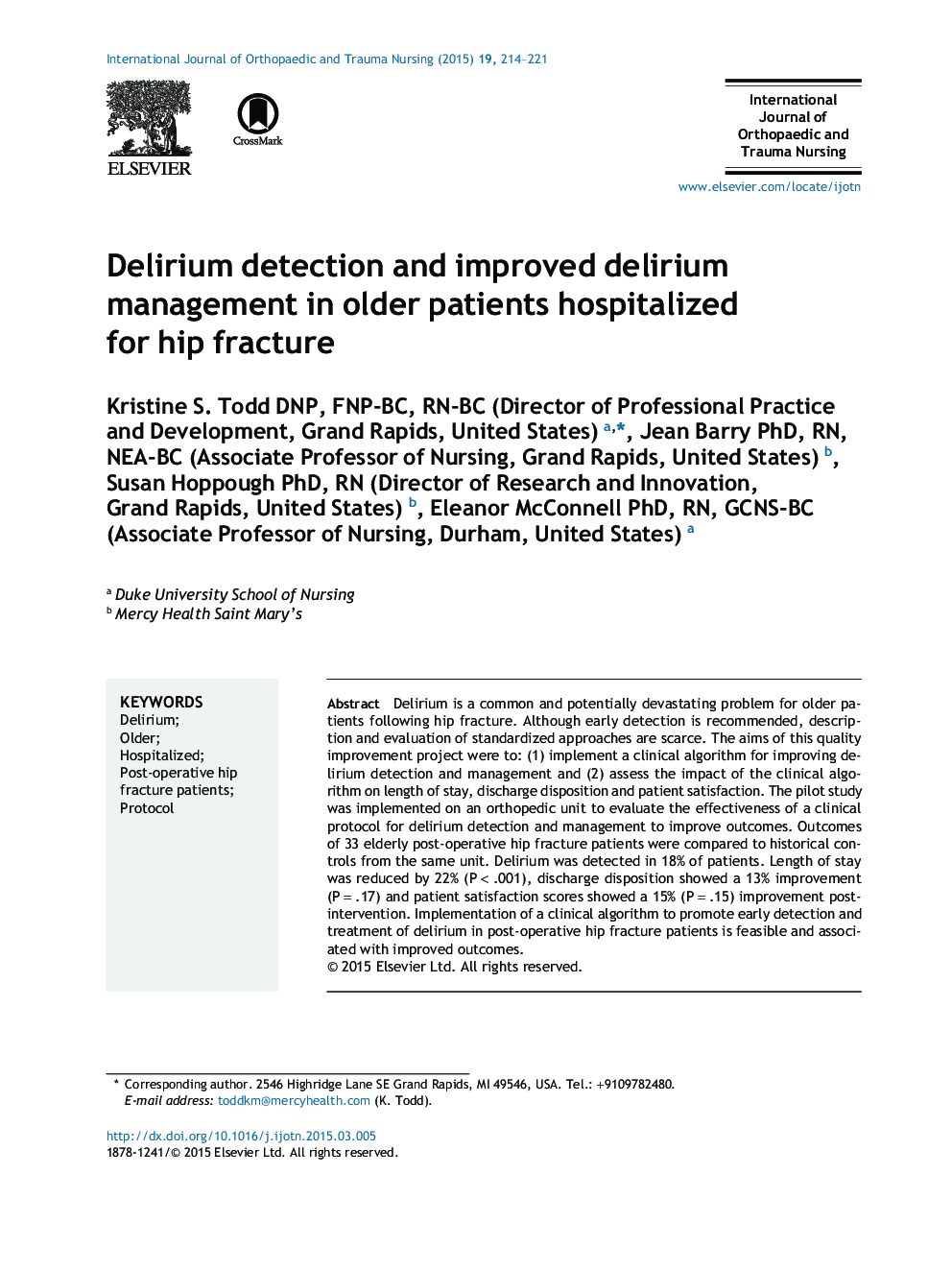| Article ID | Journal | Published Year | Pages | File Type |
|---|---|---|---|---|
| 2656218 | International Journal of Orthopaedic and Trauma Nursing | 2015 | 8 Pages |
Delirium is a common and potentially devastating problem for older patients following hip fracture. Although early detection is recommended, description and evaluation of standardized approaches are scarce. The aims of this quality improvement project were to: (1) implement a clinical algorithm for improving delirium detection and management and (2) assess the impact of the clinical algorithm on length of stay, discharge disposition and patient satisfaction. The pilot study was implemented on an orthopedic unit to evaluate the effectiveness of a clinical protocol for delirium detection and management to improve outcomes. Outcomes of 33 elderly post-operative hip fracture patients were compared to historical controls from the same unit. Delirium was detected in 18% of patients. Length of stay was reduced by 22% (P < .001), discharge disposition showed a 13% improvement (P = .17) and patient satisfaction scores showed a 15% (P = .15) improvement post-intervention. Implementation of a clinical algorithm to promote early detection and treatment of delirium in post-operative hip fracture patients is feasible and associated with improved outcomes.
